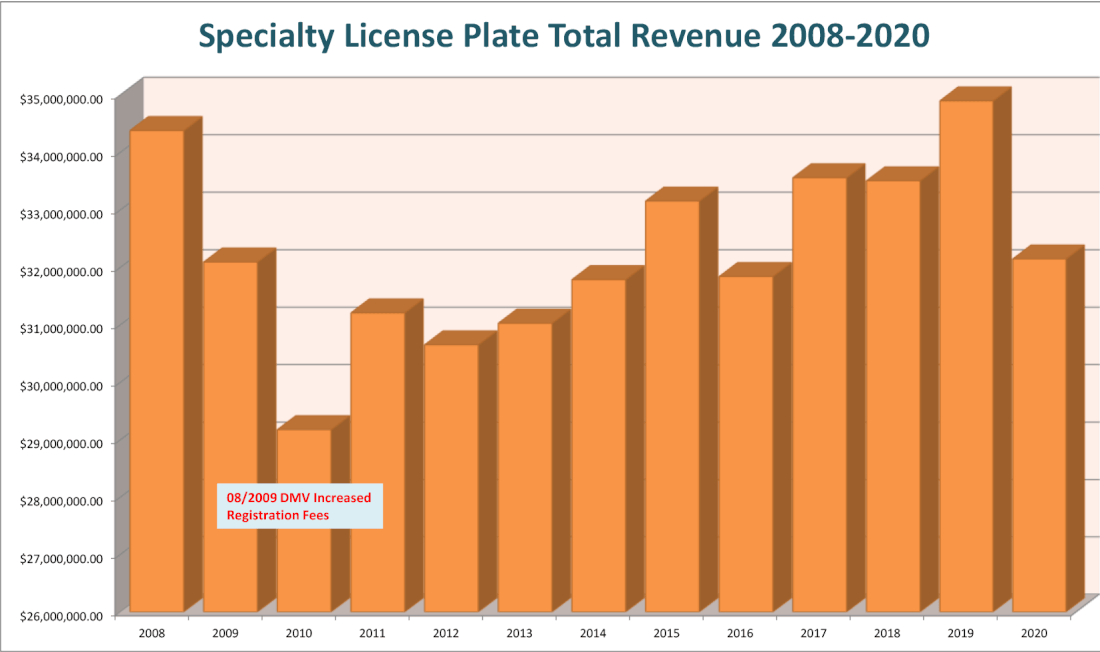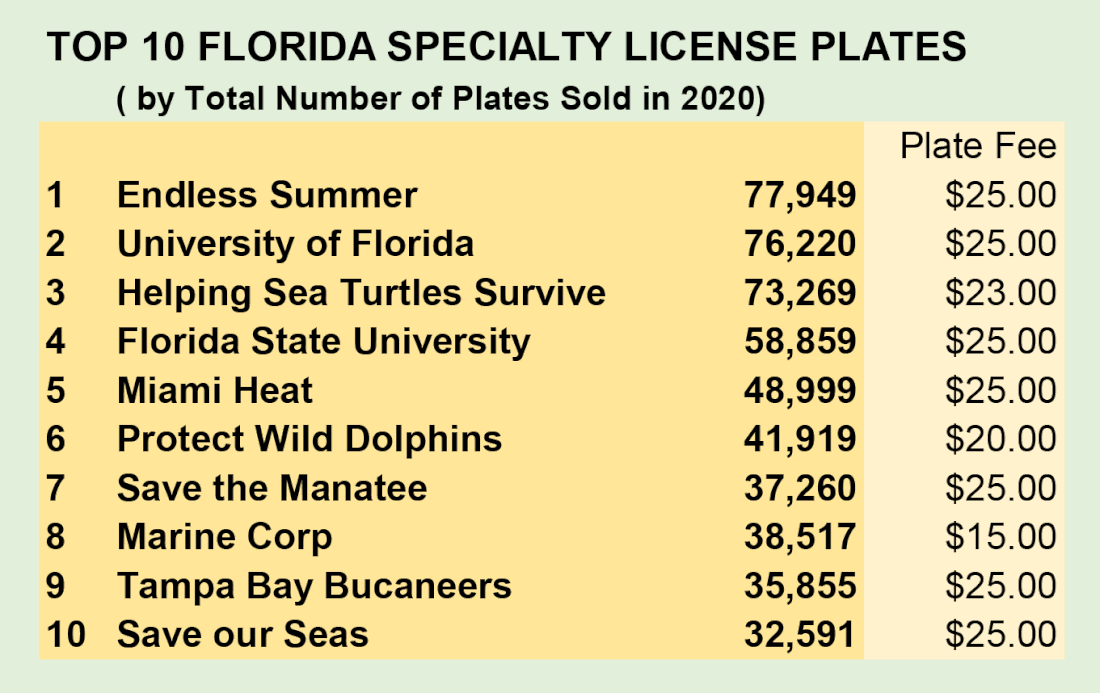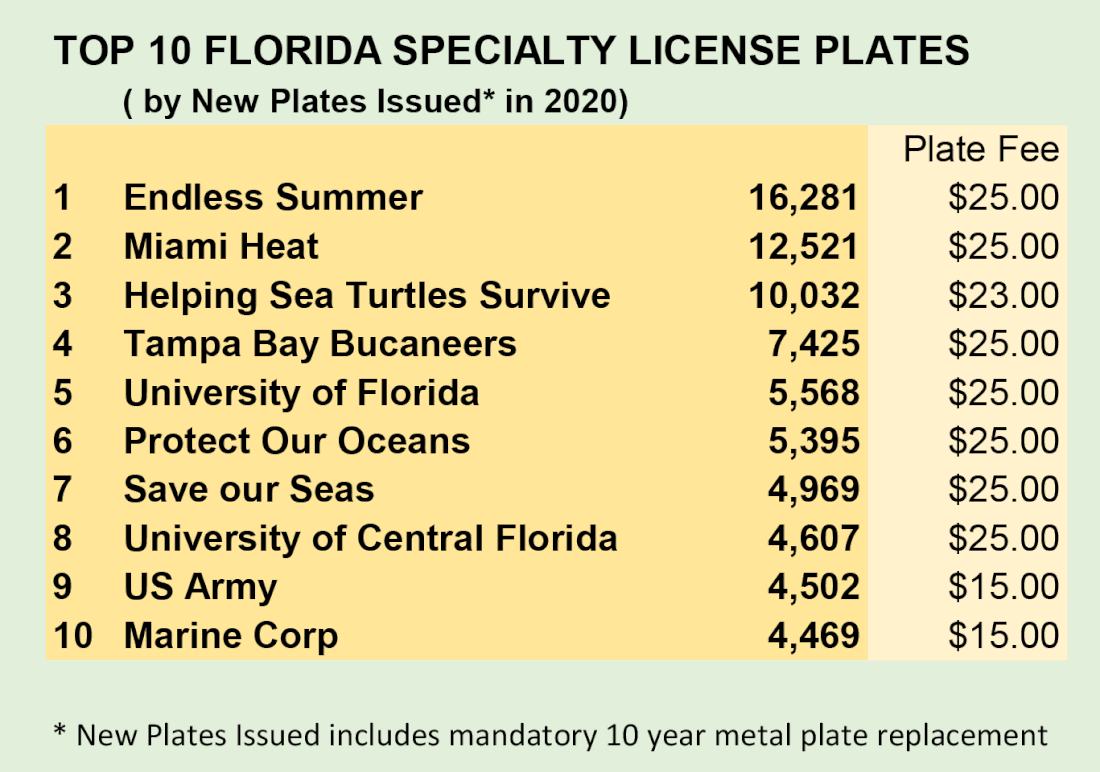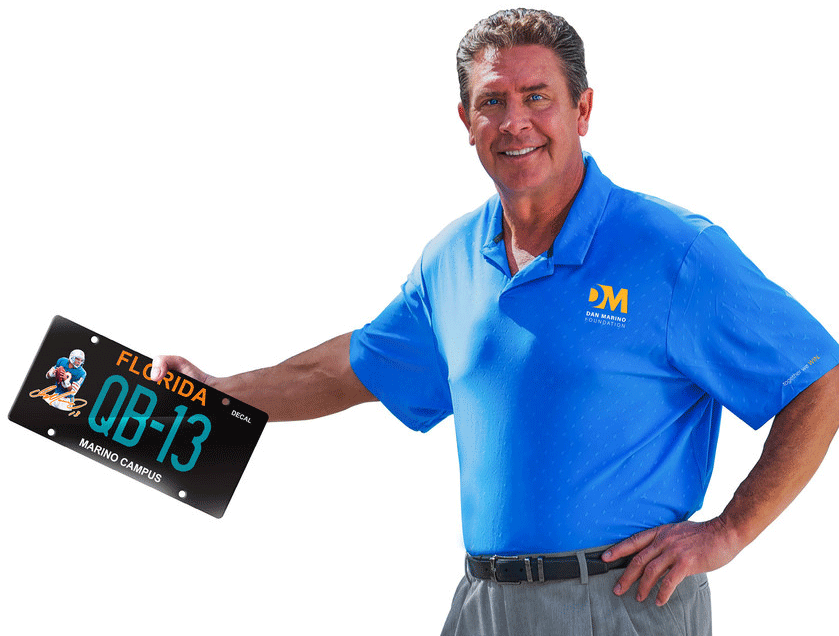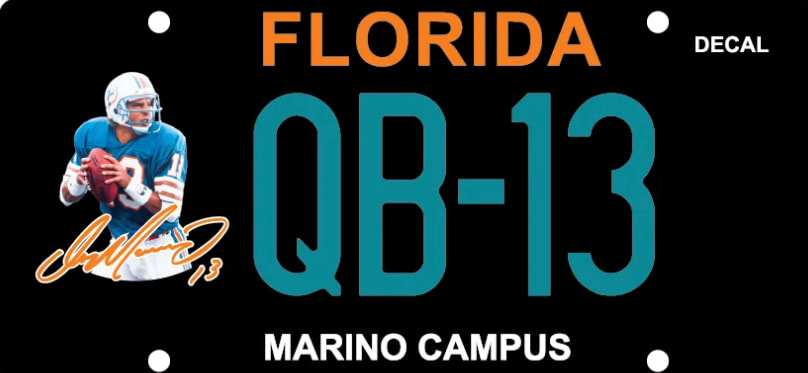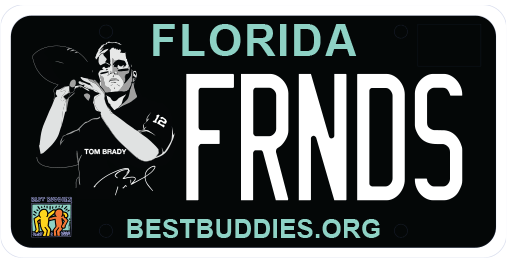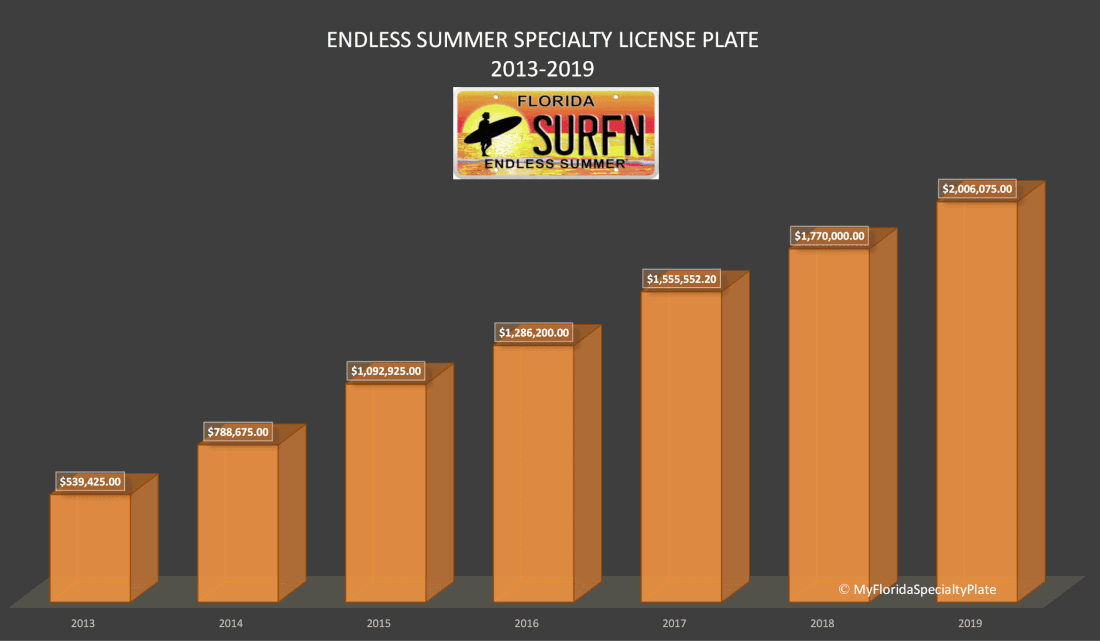|
“I appreciate the members of the Florida Highway Patrol who have volunteered to represent the state of Florida and answer the call to assist fellow law enforcement agencies along the southern border,” said Florida Department of Highway Safety and Motor Vehicles Executive Director Terry L. Rhodes. “I thank Governor DeSantis for his leadership on this issue and his continued support of law enforcement.” Governor Ron DeSantis announced that state law enforcement officers have deployed to Texas to provide additional support in response to the security crisis at the southern border. “When the Governors of Texas and Arizona reached out for help, Florida answered the call,” said Governor Ron DeSantis. “We are witnessing a catastrophe at the southern border under the Biden Administration. In recent months, we have seen people from the terrorist watch list, known sex offenders and a flood of fentanyl cross over the border. This is a national security crisis, and we must get it under control.” Resources from the Florida Department of Law Enforcement (FDLE), Florida Highway Patrol (FHP) and Florida Fish and Wildlife Conservation Commission (FWC) are deploying, including more than 50 staff law enforcement members from FDLE, FHP, and FWC and mission critical equipment. It is anticipated that personnel will be deployed for 16-day shifts. Over 20 county sheriff departments have pledged support to provide staffing resources to cover duties typically filled by the deployed officers.  President Joe Biden today approved an emergency declaration for the state of Florida, making federal aid available, including equipment and other resources and authorizing FEMA to coordinate disaster relief efforts. Additionally, a team of engineers from the National Institute of Standards and Technology is being sent to Surfside to determine whether a larger investigation that could impact building codes everywhere is needed. The federal agency studies building structural failures and recommends changes to building codes, fire response and emergency communications, according to spokeswoman Jennifer Huergo. The death toll from Thursday's partial collapse of a South Florida residential building has risen to four and the number of unaccounted increased by the dozens. Three bodies were found overnight from Thursday into Friday in the wreckage of Champlain Towers South, Miami-Dade Fire Rescue Assistant Fire Chief Raide Jadallah said, adding to one found early Thursday.
The number of people unaccounted for is now 159, Miami-Dade County Mayor Daniella Levine Cava told reporters, up from the figure of 99 that officials gave Thursday afternoon.
0 Comments
 SB 940/HB 599 Disease Prevention & Early Detection has been filed by Senator Berman and Representative Robinson to create a new specialty license plate to benefit the Women's Breast & Heart Initiative, Florida Affiliate, Inc., to provide increased education and awareness relating to early detection, prevention, and screening of breast and heart issues. Based in Miami Lakes and headed by Andrea Ivory, a breast cancer survivor and WBHI Founder and sole officer, director and Executive Director. WBHHI was formerly known as the Women’s Breast Health Initiative, Florida Affiliate. It was established in 2005 with a single goal of providing at-risk women access to early detection and proper treatment for breast cancer, WBHI created a unique, door-to-door neighborhood outreach program that increases awareness of breast health and the importance of early detection, as well as providing access to mammograms for women who are uninsured and underserved by the health care system. In 2013, WBHI addressed another crucial health care need in the community by incorporating education and awareness of heart disease – the leading cause of death in women – into their grassroots campaigns. According to WBHHI, to date these efforts have positively impacted the lives of hundreds of thousands of people.
Prior to 2009, specialty license plate sales increased every year, despite the economic recession. On October 1, 2009, the Florida State Legislature significantly increased vehicle registration fees, particularly with respect to purchasing specialty license plates. In 2009, annual sales of Florida Specialty License Plates amounted to 1,623,486. As a direct result of those increases fees, there was a subsequent 19.78% decline in Specialty Plate sales, reflecting approximately $7 million lost in annual revenue. In September, 2013, the Florida Legislature reduced some fees associated with vehicle registrations, however, did not address the significant increase in the cost to purchase a new specialty license plate that was imposed in 2009. Despite the increase in fees, specialty plates have had begun to get back to the 2008 numbers. However, according to the latest statistics released by the Florida Department of Highway Safety and Motor Vehicles, 1,382,959 specialty license plates were sold in CY 2020, this is 8.1% (121,997) lower than the total specialty license plates that were sold in CY 2019 (1,504,956). Revenue fell to $32,149,618.00 for CY2020 from $34,898,976.00 in CY 2019. A loss of $2,749,358.00 (7.9%). Biennial fees (2 year registrations) were also down in 2020, falling to $6,198,728.00, compared to $6,494,715.00. A loss of $295,987.00 (4.6%). The 1,382,959 specialty plates represent 8.2% of the 16,844,969 Florida registered vehicles. In CY2020, 183,906 new plates were issued and 1,199,053 were renewed. In CY2019, 212,911 new plates were issued and 1,292,045 were renewed.  Endless Summer, designed by Michael Towner and Steve Diossy, has now surpassed the University of Florida as the top selling specialty license plate in Florida, notwithstanding generating slightly less revenue this year compared to 2019. Miami Heat and Tampa Bay Bucs both increased their sales and revenue in 2020, the only two specialty plates to do so in the Top 10. 10,193 Presale Vouchers were sold in 2020, representing $336,369.00 total revenue, with $254,825.00 of those fees to be distributed to the presale voucher organizations, provided they complete their presales goal within two years of October 16th, 2020. So far in the 2021 Florida State Legislative Session, 5 new specialty plates have been proposed and bills have been filed for the following: Explore our State Parks - Rep Allison Tant (D-Leon County) / Senator Dennis Baxley R-Lady Lake Inter Miami CF - Senator Manny Diaz (R-Hialeah Gardens) Toastmasters - Senator Linda Stewart (D-Orlando) Gopher Tortoise - Senator Linda Stewart (D-Orlando) Orlando United - Senator Linda Stewart (D-Orlando) When it became clear this month that multiple state agencies shared a single password for their emergency messaging systems — and that the password was posted online — some observers were not surprised. It was just the latest in a series of high-profile information technology failures to roil the Sunshine State. For more than two decades, Florida has struggled when it comes to information technology. Officials have created, abolished, and recreated a state technology office at least three times. Many of the state’s biggest projects have been marred by scandal and incompetence and cost hundreds of millions of dollars. “It’s really been a series of disappointments,” said Alan Shark, executive director of the Illinois think tank Public Technology Institute who co-wrote a book on best practices for state technology. That hit home for millions of Floridians earlier this year, when the online unemployment claims system, known as CONNECT, melted down under a historic wave of jobless claims triggered by the coronavirus pandemic. Experts are not entirely in the dark as to why Florida is so dysfunctional. For years, it was one of the only states in the nation that did not have a chief information officer. And its disjointed system of handling information technology needs across dozens of state agencies has caused headaches for bureaucrats and citizens alike. State lawmakers will likely consider spending tens of millions of dollars to shore up the unemployment claims system next legislative session. But experts say it will take a far greater effort to fix Florida’s long-standing woes. National experts say that no state is immune from information technology project failures. But they can be minimized with strong leadership from the governor’s office and coordination between the chief information officer, the Legislature and individual departments. “What is the best is when there is a view of what should technology look like across the state, and that there are mechanisms to coordinate that,” said Teri Takai, executive director of the Center for Digital Government and a former chief information officer for Michigan and California. Takai said the pandemic has been a “wake-up call” for every state, and many are scrambling to modernize their technology systems and prioritizing their chief information officers. In August, Governor Ron DeSantis named former state Rep. Jamie Grant to be the state’s next Chief Information Officer. Grant had an integral role in shaping the responsibilities and role of the state’s new technology agency, having sponsored the bill in the Legislature that created the office. His bill also relaxed the requirements needed to get the job. He wouldn’t have met the previous qualifications, which included requiring 10 years of “executive-level experience.” Grant, who did not respond to requests for comment made through the governor’s office, will not be fulfilling the kind of role Bush envisioned for the chief information officer, with broad oversight over projects across state government. But some experts said he might be in a unique position to be successful anyway, considering his potential to convince his former colleagues in the Legislature of his vision and develop his ties with DeSantis. “As he would say, he has the governor’s ear,” Takai said. “That’s extremely important.” Others were skeptical much would change. “We’re still doing things the way it was done 20, 30 years ago,” said David Taylor, the state’s chief information officer from 2008 to 2012. “Every year we get further and further behind.” Governor Jeb Bush, who held office from 1999 to 2007, took pride in being nicknamed the “e-governor.” He created a new state technology office to lead government into the 21st Century. His new office, led by a new chief information officer, was supposed to save taxpayers millions each year by negotiating contracts across state government, rather than by individual agencies, and ensuring project rollouts were compatible with one another. It was also supposed to transform the way Floridians interacted with their state government. Citizens could go to a single website to renew their driver’s licenses, apply for occupational licenses, register to vote. Like a state-run version of Amazon.com, the site would know who you were and what you wanted (or needed) when you logged in. State lawmakers, despite some skepticism, approved a 1,700-employee office with a $600 million budget. But to lead this historic effort, Bush did not seek out a national, state or even agency leader. Instead, he chose a guy who helped on his campaign, Roy Cales. It was doomed almost from the start. Instantly, questions were raised about the cozy ties between lobbyists representing technology companies and the state’s technology office. Bush’s choice to lead the office, Roy Cales, was arrested on an unrelated fraud charge and resigned less than two years later. His replacement, Kim Bahrami, dished out more than $170 million in contracts to two companies that were retracted after state auditors found the awards violated state laws. Bush did not respond to requests for comment. Cales couldn’t be reached for comment. Lawmakers quickly grew tired of the scandals. Within five years, they stripped the office of funding, effectively killing it. The state’s information technology system never recovered. In 2007, lawmakers created the Agency for Enterprise Information Technology. Five years later, they stripped it of funding. In 2014, then-Gov. Rick Scott created the Agency for State Technology in another attempt to coordinate information technology projects across the state. But lawmakers grew tired of the office awarding tens of millions in no-bid contracts, and effectively closed it last year. This year, Gov. Ron DeSantis created yet another office: the Florida Digital Service. None of those agencies have been able to stop two decades of fiascos with its large technology projects. Lawmakers during the 2020 legislative session passed a bill (HB 7009) to help carry out a 2018 constitutional amendment aimed, at least in part, at slowing the revolving door involving public officials and the private sector.
The bill to carry out what was Amendment 12 on the 2018 ballot will take effect Thursday. It was approved without debate or opposition in the House and Senate. Amendment 12 was among a handful of proposed amendments that passed after being put before voters in 2018 by the Constitution Revision Commission. The amendment received support from nearly 80 percent of voters. The bill deals with penalties for public officials and employees who abuse their positions and was passed after the Florida Commission on Ethics approved a rule that defined “disproportionate benefit.” Part of the constitutional amendment said a “public officer or public employee shall not abuse his or her public position in order to obtain a disproportionate benefit for himself or herself; his or her spouse, children, or employer; or for any business with which he or she contracts; in which he or she is an officer, a partner, a director, or a proprietor; or in which he or she owns an interest.” Two other parts of the amendment still require legislative action and aren’t set to become law until Dec. 31, 2022. One will extend from two years to six years the time in which lawmakers must wait after leaving office before lobbying legislators and other statewide elected officials. The change also puts similar prohibitions on former state agency heads and former judges. The second change prohibits public officials, while in office, from lobbying for compensation government agencies or the Legislature on such things as policies, appropriations and contracts. Two new Florida specialty license plates are now in a race to complete their Presale Voucher phase, where they have to get 3,000 before the plate will be made - both featuring quarterbacks. The Dan Marino license plate will benefit the Dan Marino Campus, Tom Brady's image is being used to benefit Best Buddies International. Both organizations have chosen a black background, which is trending throughout the United states. So who will be the first to complete their presale? And which plate will sell more? The Florida Legislature prioritized their list of new plates when approving them this year, and the DMV must cycle through them for approval in that order. Marino starts at #11 in the order of plates to be approved, Brady/Best Buddies is at #21. With Tom Brady still playing, and Dan Marino retired, a comparison of the two quarterbacks can still be made. Both were measured at 6' 4" and nearly 225 lbs, Marino was drafted in the 1st round (27th overall) in 1983 and Brady was drafted in the 6th round (199th overall) in 2000. Brady has appeared in 9 Super Bowls, Marino in 1. Brady has been voted NFL MVP 3 times, Marino 1.
Other interesting comparisons: NFL Passing touchdown leader: Brady 2 - Marino 3. NFL Passing Yards Leader: Brady 2 - Marino 5. Touchdown Passes: Brady 50 (2007) - Marino 48 (1984) Passing Yards: Brady 5235 (2011) - Marino 5084 (1984) Interceptions Thrown: Brady 0 (2008) - Marino 3 (1983) Stay tuned! Gov. Ron DeSantis signed a bill on Friday which, among other things, will introduce 32 new specialty license plates onto the road. The bill, sponsored by former Rep. Jamie Grant, paves the way for the 32 new specialty license plates, establishes a cap of 150 specialty license plates and formalizes a discontinuation process for low performing specialty license plates. HB 1135 also authorizes the Department of Highway Safety and Motor Vehicles to issue specialty license plates for fleet and motor vehicle dealer vehicles. The bill also provides for a redesign of the Special Olympics tag to change the slogan to “Be a Fan”; redistribution of proceeds for the “Live the Dream” license plate to be limited to Sickle Cell organizations and the Miami based Chapman Partnership, with March of Dimes and Florida Association of Healthy Start Coalitions being deleted, and the DMV now responsible to pay a 5% royalty fee to the Martin Luther King Jr. Center for Nonviolent Social Change, Inc. for the use of the image of Dr. Martin Luther King, Jr. ; and a change in the use of proceeds for “In God We Trust” tag with up to 90% to be utilized to provide education in public and private schools regarding the historical significance of religion in American and Florida history. The revenue from the Florida Law Enforcement Officer license plates, originally distributed to the Police and Kids Foundation, Inc., to invest and reinvest, and the interest earnings must be used for the operation of the Police and Kids Foundation, Inc., now may be directly used for the operations, activities, programs, and projects of the Police and Kids Foundation, Inc. Preserve Vision Florida is changing their name on their plate from Prevent Blindness. A cap of 150 plates is now in place, with 32 new plates created by the bill, provided they meet the presell requirementswith the current number of plates at 122. To create the new plate, the organization must submit its proposed art design to DHSMV as soon as practicable, but no later than 60 days after October 1, 2020 . Within 120 days from October 1, 2020, DHSMV must establish a method to issue a specialty license plate voucher allowing for the presale of such plate. The $5 processing fee, the service charge and branch fee, and the annual use fee for the specialty license plate are charged for the voucher. All other applicable fees are charged at the time the license plate is issued. The presell is now 3,000 (4,000 for out of state colleges) The bill provides that new specialty license plates that have been approved by law but are awaiting issuance will be issued in the order they appear in s. 320.08058, F.S., provided all requirements, including the presale requirement, have been met. If the next awaiting specialty license plate has not met the presale requirement, DHSMV must proceed in the order provided in law to identify the next qualified specialty license plate that has met the presale requirement. DHSMV must cycle through the list in statutory order. If the Legislature has approved 150 or more specialty license plates, DHSMV may not make any new specialty license plates available for design or issuance until a sufficient number of plates are discontinued so that the number of plates being issued is reduced to fewer than 150. DHSMV must cycle through the list in the following statutory order:
The bill requires DHSMV to discontinue the specialty license plate with the fewest number of plates in circulation, including license plates exempt from a statutory sales requirement on January 1 of each year. For the specialty license plates in the bottom 10 percent of sales, the bill requires DHSMV to mail a warning letter to the sponsoring organizations. Effective July 1, 2023, the bill requires DHSMV to discontinue the issuance of approved specialty license plates if the number of valid registrations falls below 3,000 plates (4,000 for out of state colleges) for 12 consecutive months. In addition to the existing exemption from the 3,000 plate sales requirement for in-state collegiate license plates, the bill provides exceptions from the discontinuance requirement for license plates: · For institutions in and entities of the State University System; · With statutory eligibility limitations for purchase; · For which the annual use fees are distributed by a foundation for student and teacher leadership programs and teacher recruitment and retention; and · Florida Professional Sports Team license plates. The bill requires DHSMV, in cooperation with the independent colleges and universities, to create a standard template specialty license plate with a unique logo or graphic identifying each independent college or university. Each independent college or university may elect to use this standard template specialty license plate in lieu of its own specialty license plate. Annual use fees from the sale of these license plates are distributed to the independent college or university for which the logo or graphic is displayed and must be used as provided in s. 320.08058(3), F.S. Independent colleges and universities opting to use the standard template specialty license plate will have their plate sales combined for purposes of meeting the 3,000 plate minimum sales threshold and determining the 150 plate limit. These plates must be ordered directly from DHSMV. Prior to the development of an out-of-state college or university license plate, DHSMV must have documentation on file indicating the college or university has consented to use an appropriate image on the license plate. The bill prohibits any entity from using specialty license plate revenue for lobbying. The current prohibition is limited to agencies. According to Kevin Jacobs, Deputy Director of Legislative Affairs, Department of Highway Safety and Motor Vehicles, creation or modification of specialty and special license plates require system programming to implement. Depending on the number of distributions tied to the plate, the amount of programming may vary as will the resources needed to complete the changes. The average specialty/special license plate with a single distribution requires approximately 200-250 hours of programming, at a rate of $35 to $40 per hour. The bill creates 32 new specialty license plates, four new special license plates and removes from law five specialty license plates that have been discontinued. While DHSMV has not determined its fiscal impact, it is likely to be between $7,000 and $10,000 per plate created. Many existing plates had to pay a fee of $60,000.00 to cover those costs in the past. DHSMV states the cost to perform an audit every three years of each specialty license plate may result in a workload impact that can also be absorbed within existing resources.
DeSantis signed the bill on the eve of Rosh Hashanah, the “Florida Stands with Israel” tag was originally submitted to the House in a separate bill co-sponsored by House Minority Leader Kionne L. McGhee and Rep. Scott Plakon. “This shows that our relationship with the State of Israel touches upon many of Florida’s most vital interests, values, and ideals,” the pair said in a joint statement. “Accordingly, the overwhelming majority of Floridians support this special relationship and now have a wonderful way to celebrate it.” Plakon in a separate statement recognized the plate’s symbolic passage. “I cannot think of a sweeter way to wish Florida’s Jewish community a Shana Tova – Happy New Year!” he added. Current law prohibits the redesign of a specialty license plate unless the inventory of the license plate has been depleted. However, the organization may purchase the remaining inventory of the specialty license plate from DHSMV at the department’s cost.133 Special Olympics Florida may be required to purchase the remaining inventory of its specialty license plate at DHSMV’s cost prior to the authorized redesign of its license plates. 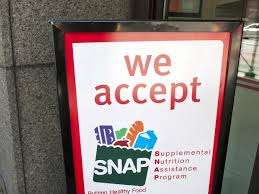 Food stamps — formally known as the Supplemental Nutrition Assistance Program, or SNAP — support young and old, healthy and disabled, the working and the unemployed, making it the closest thing the United States has to a guaranteed income. Though administered by states, the benefits are paid by the federal government, with no spending cap, and the program has largely avoided the delays that have plagued unemployment insurance. After long pushing to reduce SNAP usage, claiming it promotes dependency and waste, the Trump administration eased administrative rules during the pandemic to speed enrollment. Two Republican-led states, Florida and Georgia, have expanded caseloads the most, and state officials from both parties have called the program an essential antipoverty tool. About 43 million people — roughly one of every eight Americans — now receive SNAP. More than six million people enrolled in food stamps in the first three months of the coronavirus pandemic, an unprecedented expansion that is likely to continue as more jobless people deplete their savings and billions in unemployment aid expires this month.  Thirty states have experienced double-digit growth, and usage has risen in all 133 counties in the three West Coast states. About 50,000 people have joined the rolls in the county that includes Atlanta, more than 100,000 in the county that includes Detroit and more than 200,000 in those that include Miami and Los Angeles. No state has seen more growth than Florida, which has added nearly a million residents to the rolls. Among the new centers of SNAP usage is Orlando, where a region known for flights of fantasy became a center of nutritional need. With amusement parks closed and tourism vanishing, caseloads in Orange and Osceola Counties rose more than 50 percent, adding nearly 125,000 people. From February to May, the program grew by 17 percent, about three times faster than in any previous three months, according to state data collected by The New York Times. Its rapid expansion is a testament to both the hardship imposed by the pandemic and the importance of a program that until recently drew conservative attack. The rolls have surged across Appalachian hamlets, urban cores like Miami and Detroit, and white-picket-fence suburbs outside Atlanta and Houston, rising faster in rich counties than in poor ones, as the downturn caused by the virus claimed the restaurant, cleaning and gig economy jobs that support the affluent. Despite SNAP’s expansion, surveys continue to show high rates of “food insecurity” — reduced quality of food or uncertain access — as well as outright hunger. A new survey by the Urban Institute found 17.7 percent of adults report food insecurity, much higher than pre-crisis levels. The rate for Black people and Latinos was about twice as high as for whites.  As Congress returns this week, Democrats want to increase the maximum benefit by 15 percent, noting that food prices have risen to the highest level in nearly a half-century. Aside from SNAP, there is a growing need for nonprofit services during and after the pandemic that will outpace the capacity and resources of organizations and according to a recent report, the possibility that 10% to 40% of nonprofit groups will be forced to close or merge with other ones, and there will be much less government money to help pay for the services organizations deliver. The Trump administration says that the next coronavirus aid package, which is expected to top $1 trillion, should focus on 'kids and jobs and vaccines.' Negotiations between congressional Republicans and the White House hit snags over the weekend and talks between the GOP and Democrats have been nearly non-existent. Treasury Secretary Steve Mnuchin said that Republicans are committed to passing legislation by the end of the month to protect unemployed Americans who have been receiving enhanced benefits, though he suggested it won't be as much as the current level of $600 extra in unemployment insurance per week. "We're going to make sure that we don't pay people more money to stay home than go to work. We want to make sure that people who can go to work safely can do," he said. "We'll have tax credits that incentivize businesses to bring people back to work. We'll have tax credits for PPE for safe work environments, and we're gonna have big incentives, money to the states for education for schools that can open safely and and do education." Republicans also want to offer liability protections for schools, colleges, charities, businesses and frontline health care workers and employers who follow public health guidelines. "We don’t need an epidemic of lawsuits on the heels of a pandemic," said McConnell. Some Senate Republicans are pushing back against a White House attempt to block billions of dollars for coronavirus testing and tracing contacts of individuals infected with the coronavirus, two Republican sources told NBC News on Sunday. News of the White House push to block the funding was first reported by The Washington Post. Congress doesn’t have much time to negotiate and pass the legislation — lawmakers have only a few weeks left in Washington before their annual summer recess in August which will be focused on their own interests of campaigning, collecting campaign contributions and the two parties’ conventions in advance of the November election with no mention by either party of any extended session to address the resurgence of the pandemic. For more, click here.
Sales of the Florida Endless Summer specialty license plate have grown 272% since 2013, now surpassing $2 million in 2019 and is now the second most popular specialty license plate out of 122 specialty plates in Florida. Funds are used for programs which include educating the general public regarding the history of surfing as a sport and as a recreational activity; providing support for lifeguards at high risk beaches to aid in the protection of the public who utilize such beaches; providing support for environmentally friendly activities; providing educational programs, including publication of articles and hosting and supporting forums and events; and for developing and supporting activities designed to assist in preserving and protecting the shoreline and the delicate ecosystems residing therein. The Endless Summer slogan is used under license from Bruce Brown Films, LLC.
Prior to 1964, the media saw surfers as rebellious thugs, and Hollywood made them out to be a bunch of idiots. Filmmaker Bruce Brown single-handedly changed that with The Endless Summer. It portrayed the wave as a kind of Holy Grail and surfers as knights on a quest. In one stroke, he replaced Hollywood’s buffoonery with the popular mythology that endures today. The Endless Summer was Brown’s sixth surfing film in a career that started almost accidentally and proceeded according to the guerrilla template of the times — shoot all winter, edit in the spring, run your ass off all summer showing the damn thing (including doing your own live narration) in school auditoriums and small halls, then pack up for another winter on the road and do it all over again. With The Endless Summer, Brown broke that mold.  Publix shoppers can now renew vehicle registrations in less than two minutes at one of three stores in Hillsborough County offering a self-service kiosk through the tax collector’s office. Hillsborough County Tax Collector Doug Belden announced the “Florida MV Express” program’s expansion Tuesday morning inside the grocery chain. The bright blue and yellow automated kiosks are up and running in three Publix locations. The kiosks were provided to Hillsborough County free of charge from developers Intellectual Technology Inc., in exchange for the proceeds from a 2.25 percent fee on credit or debit card payments, Belden said. Kiosks inside the tax collector’s branch locations accept cash payments at no additional charge. Vehicle registration kiosks have long been mainstays in grocery stores in California, Colorado, Hawaii and at least a dozen other states. But bringing the customer service innovation to Florida first required about two years of negotiations with the Department of Highway Safety and Motor Vehicles, rewrites to state legislation and another year of negotiations with Publix executives, Belden said. “This is huge for us,” Belden said Tuesday. "Especially as our county continues to grow, we’ve been looking for ways to take the pressure off of our customer service representatives in different ways with emerging and cutting-edge technology. You can’t just keep building more branches.” Belden’s office became the first agency in Florida to adopt the automated kiosks with a soft launch in early February at four of its busiest tax collector locations: in Brandon, Drew Park, North Tampa and Ruskin. Since then, those four kiosks have processed more than 20,000 vehicle registrations, Belden said. The three Publix kiosks, only operational for a few days, have already renewed 160 vehicle registrations. Belden said he hopes his office can find ways to expand the kiosks’ uses and locations. For now, the kiosks can only renew vehicle registrations for personal vehicles and trailers that don’t require an IRS Heavy Vehicle Use Tax or a new license plate to be issued. They can’t renew registrations for autonomous vehicles, government vehicles, boats, mobile homes, National Guard or personalized license plates and cannot switch to specialty license plates. It’s a promising start, said Brian West, the supermarket’s Media and Community Relations Manager. “Hillsborough was the first county in Florida to do this, but for Publix, these are the first stores in our entire footprint to have these kiosks — and we operate in seven states,” West said.  Senator Keith Perry (R-Gainesville/Ocala) has filed SB 860 on 11/12/19 which proposes to restructure the application process for the creation of new specialty plates in Florida. Senator Perry served in the House from 2010 to 2016 and is in his 4th year in the Florida Senate. He was born in Tallahassee and is the founder and CEO of Perry Roofing Contractors. Currently, in order to create a specialty license p[late in Florida, it requires legislative approval. In fact 28 new plates are attempting to be created during the same session, many of which have failed on numerous occasions in the past 5 years. Senator Perry's bill proposes that the Department of Motor Vehicles would be solely responsible for the creation of a new specialty license plate, with the provision that the new plate must get a minimum of 2,000 voucher sales within 24 months and a maximum cap at 125 specialty plates at any one time. Currently Florida has 122. The bill also provides that current specialty plates will be de-listed if total plates are less than 1,000 current plates (or 2,000 in a later conflicting section of the bill) for 12 months and collegiate plates are not excluded. This could pave the way for 30 new specialty plates. The full gallery of available Florida specialty license plates can be viewed by clicking here. Florida DMV does not have the facility to order specialty license plates online, however, they can be ordered at MyFloridaSpecialtyPlate.com. 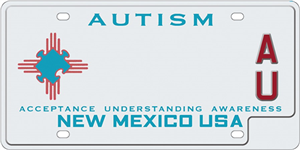 A state legislator in New Mexico wants to also make it easier for organizations looking to create a specialty New Mexico specialty license plate. State Representative Patricio Ruiloba D-Albuquerque, a former police officer, wants to streamline the process for these groups by requiring them to go through the MVD instead of the state legislature. He introduced this proposal last week at a transportation subcommittee meeting. Right now, there are more than 40 specialty plates available in New Mexico. Ruiloba says the wide variety is a point of pride for the state. “It’s welcoming in New Mexico because of our diversity to have different kinds of license plates to express our culture and many of the organizations that support New Mexico and I think we just need to find a better way to accommodate those needs,” Ruiloba said. He says there will likely be other license plate-related legislation coming up this session, including more talks of potentially requiring a front license plate.
|
BLOGArchives
January 2025
Categories
All
|
